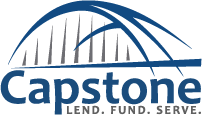How to Successfully Negotiate With a Mortgage Lender
When it comes to financing real estate—whether it’s your dream home or your next investment property—the mortgage you choose can significantly impact your bottom line. While many borrowers assume loan terms are set in stone, there are specific aspects you may be able to influence. But can you negotiate mortgage rates with your lender? What about fees and closing costs? And how does working with a private lender differ from going through a traditional bank?
This article breaks down what’s negotiable, how to prepare for negotiation, and which type of lender may offer you more flexibility.
Which Parts of a Mortgage Are Negotiable?
Not all parts of a mortgage are open to negotiation—especially if you're working with a traditional lender. Banks and large institutions typically follow strict underwriting guidelines, particularly if they’re issuing government-backed loans like FHA or VA. That said, you might still have some room to maneuver in key areas:
Can you negotiate mortgage rates?
With traditional lenders, mortgage rates are generally not negotiable. However, you may be able to buy down the rate using mortgage points. One point typically costs 1% of the loan amount and reduces your interest rate by around 0.25%, although the exact impact varies by lender. If you plan to keep the property long-term, paying points upfront can lead to significant savings over the life of the loan.
Private lenders, on the other hand, often have more flexibility. If your deal is attractive (i.e., it has strong collateral or a fast turnaround), you may be able to negotiate a lower rate without buying points.
Can you negotiate loan origination fees?
This is one area where you may have some success—particularly with smaller or private lenders. Loan origination fees cover the cost of processing your loan application and typically range from 0.5% to 1% of the loan amount.
While large institutions rarely adjust this fee (it's often standardized), private lenders may consider lowering it if the loan is especially lucrative or if you have a strong borrower profile.
How to negotiate mortgage closing costs
Mortgage closing costs include various fees such as title insurance, appraisals, underwriting, and legal work. With a traditional lender, some of these third-party fees are fixed, but others—like underwriting or application fees—may be open to discussion.
With a private lender, the entire fee structure is often less rigid. If you’re closing quickly, offering a larger down payment, or bundling multiple loans, there’s a good chance the lender will be open to reducing certain costs.
Strategies for Negotiating With Your Lender
Whether you're approaching a bank or a private lender, it’s important to come to the table prepared. Here’s how to negotiate mortgage rates and associated costs effectively:
Strengthen Your Borrower Profile
The better your financial picture, the more negotiating power you have. Lenders evaluate your credit score, debt-to-income ratio, assets, and property value when setting terms. Make sure to:
Improve your credit score before applying.
Show proof of consistent income or investment returns.
Provide documentation of liquid reserves.
For investor-borrowers, especially with private lenders, demonstrating a track record of successful projects can be just as influential as a high credit score.
Offer a Larger Down Payment or Loan Amount
While it may seem counterintuitive, sometimes borrowing more can actually help. A larger loan often represents a bigger return for the lender, especially in short-term private lending scenarios. This might give them more room to offer favorable rates or reduced fees.
Ask for a Better Deal—But Know Where to Push
When negotiating, focus on areas where the lender has discretion. Instead of asking “Can I get a lower rate?” try “Can I buy down the rate with points?” or “Are any of these fees flexible?” Asking the right questions shows you’ve done your homework.
Be sure to directly address each negotiable area:
Can you negotiate mortgage rates? Only with points or via private lending.
Can you negotiate loan origination fees? Sometimes—especially outside major banks.
How to negotiate mortgage closing costs? Focus on lender-controlled fees, not third-party charges.
Why Private Lending May Offer More Flexibility
Traditional lenders are bound by federal and institutional regulations, which means limited room for personalization. If you're an investor with unconventional income or a property that doesn’t fit in a standard underwriting box, this can be frustrating.
Private lenders, by contrast, evaluate deals more holistically. They can consider factors like your experience in real estate, your long-term business plan, or the strength of your asset—things traditional lenders may overlook. This allows for more room to negotiate rates, fees, and even the loan structure itself.
Image by miss irine
Work With a Lender Who Sees the Full Picture: Why Capstone is the Right Choice
Negotiating a mortgage isn’t always easy—especially if you’re dealing with rigid institutions. But the right strategy, backed by solid financials and an understanding of which costs are flexible, can lead to better terms and long-term savings. And if you’re an investor or developer, private lenders often offer the adaptability traditional banks lack.
If you're looking for flexible terms, fast funding, and a lending partner that evaluates deals based on real-world potential, reach out to the expert hard money lenders at Capstone Capital Partners. Their team understands the unique needs of real estate investors and structures loans to support your success.
Ready to partner with Capstone? Tell us a little bit about yourself and we’ll get in touch with you!



